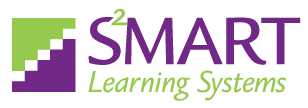The Standards for Professional Learning from Learning Forward put the definitive stamp of reform on educator professional learning, filling an important “knowing and doing” gap. For years, Learning Forward has been promoting, modeling and leading professional learning practices that reflect these standards. But educators have been slow to embrace the fundamental shift away from “sit and get” workshops. Even with the enormous popularity of professional learning communities (PLCs), the learning part of the equation has taken a back seat to the structural changes needed to effectively implement them.
However, we are beginning to see the shift take place. Schools and districts are building robust and balanced common assessments for learning and they are using the SMART School Improvement Process to optimize the use of those assessments to focus professional learning, resources and research on improving student learning. The Standards for Professional Learning will accelerate this shift because they provide a credible, well-written and clearly defined set of expectations that are certain to have a significant impact on school and classroom cultures.
In step with Learning Forward, SMART Learning Systems has designed learning opportunities that align to and embed the new standards. We have, with great pride as well as potential peril to our bottom line, refused to go into districts to conduct stand-up workshops that are void of job-embedded, data-driven and supported collaborative learning.
Our SMART school, team and student goal-setting processes require a depth of learning that cannot be delivered through the traditional approach. They must be monitored for fidelity of implementation and evaluated for impact on student learning and cultural change.
The Standards for Professional Learning are exactly what is needed to help educators build capacity for ongoing, sustained professional learning that is focused on student success. Now that the standards are documented and reside within an important policy arena, we will be even more aggressive in helping districts assess and rethink their traditional models of professional development.
Anne Conzemius
